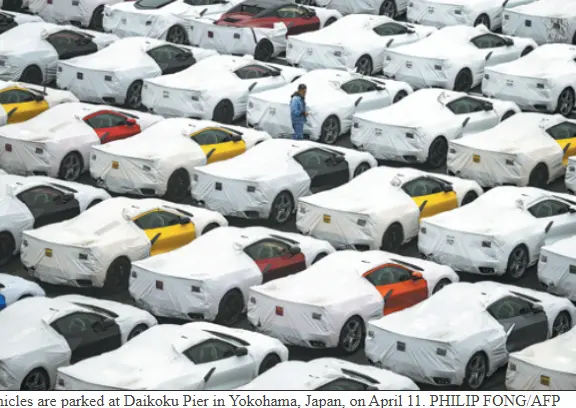The coronavirus pandemic has claimed 17,669 lives in locked-down Italy as of Wednesday, bringing the total number of infections, fatalities and recoveries to 139,422 since the pandemic began here in late February, according to latest data released by the country's Civil Protection Department. Speaking at a televised press conference, Civil Protection Department Chief Angelo Borrelli confirmed that there were 1,195 new active coronavirus infections compared to Tuesday, bringing the nationwide total to 95,262 cases.
Of those infected, 28,485 are hospitalized -- down by 233 compared to Tuesday, 3,693 are in intensive care and the rest are quarantined at home, Borrelli said.
"Like yesterday, there has been a drop in the number of patients in intensive care by 99 compared to yesterday (Tuesday)," Borrelli said.
New fatalities on Wednesday were 542, raising the total to 17,669 since the pandemic first broke out in northern Italy on Feb. 21.
What's more, there were 2,099 additional recoveries compared to Tuesday, bringing that total to 26,491.
Borrelli stressed that "50 percent of the recoveries since the beginning of the emergency have occurred over the past 10 days," adding that the number of recoveries over the past 24 hours constitutes "a new record."
According to Borrelli, Italians have donated over 113 million euros (123 million U.S. dollars) to the Department's coronavirus emergency fund, of which 25 million euros have been spent on ventilators and individual sanitary protection kits.
"Today two medical teams have arrived from Norway and Romania" and Austria has sent "a load of disinfectant" under the European Union (EU) Civil Protection Mechanism, he said.
A team of 84 volunteer Italian doctors will be dispatched to the frontline on Thursday, the third contingent of the Department's coronavirus task force.
"As of tomorrow, the total number of (Italian volunteer) doctors will be 180, plus 116 international doctors and other medical staff, all of them operating in our hardest-hit regions," Borrelli said.
As for a possible relaxation of the lockdown, Dr. Ranieri Guerra, who sits on the Technical and Scientific Committee advising the government on how to handle the pandemic, said at the press conference that "we still have to take a lot of preliminary steps."
"The trend of the epidemic curve shows it is not decreasing significantly, but rather we are in the midst of a slowdown in the speed of transmission (of the virus)," said Guerra.
"We are on a plateau, which is progressively and very slowly lowering," said Guerra, who also serves as assistant director-general for strategic initiatives at the World Health Organization (WHO).
"This means there is a reservoir of asymptomatic coronavirus carriers, which continues to guarantee the circulation of the virus," said Guerra.
Relaxing the lockdown "in these conditions, without precise knowledge of how the coronavirus epidemic has evolved and will evolve, is rather difficult to imagine," he said.
Among the latest victims was two-time Olympic finalist Donato Sabia, 56, who died in the southern city of Potenza just days after COVID-19 claimed his father's life, the Italian Athletics Federation (FIDAL) announced Wednesday.
Sabia was an 800-meter finalist in Los Angeles in 1984 Summer Olympics and Seoul in 1988 Summer Olympics and was the European indoor distance champion in 1984, according to the FIDAL statement.
Meanwhile, the number of doctors died from COVID-19 rose to 96 on Wednesday, according to the National Federation of Medical, Surgical and Orthodontists Boards (FNOMCeO).
In an article on the impact of the pandemic on European households, Bank of Italy analysts said "all the advanced economies have now adopted variously restrictive measures to contain the spread of the coronavirus infection ... These have profound effects on job opportunities and the income-generating capacity of a large part of the population, and their prolongation could increase pre-existing situations of economic hardship and potentially create new ones."
"In Italy and Spain, which are the European countries that are currently hardest hit by the contagion, over 40 percent of the population" would likely run out of money during a three-month lockdown, while in France and Germany, about 40 percent and 33 percent of households are in that precarious position respectively, the article noted.
 简体中文
简体中文

















